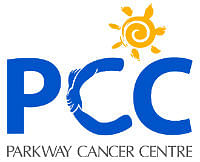
What is cancer?
Cancer can be described as a disease that is caused by an uncontrolled division of abnormal cells in a part of the body.
In a healthy human body, cells grow and divide to form new cells as and when the body needs to be repaired.
But cells that have mutated do not die when they are old and damaged. They continue to form new cells even when they are not needed. These extra cells may populate until they form growths called tumours.
Cancerous cells are malignant, which means they can invade nearby tissue and infiltrate them. Some malignant cells can also travel to other parts of the body through the blood or lymph system and form new tumours far from the original tumour.
What causes cancer?
The leading cause of cancer in our present society is our lifestyle habits.
While genetics play a part, what we eat and do with our bodies can have a direct effect on our potential to develop cancer.
Smoking, for instance, increases a person's risk of cancer.
High intake of sugar also has the same detrimental effects as research has shown that insulin promotes the uncontrollable growth of cells.
People who are overweight or obese are, therefore, more prone to developing the disease.
Treating cancer
The good news is that cancers we see today are more curable now than they were 50 years ago.
Advancements have been made to screening procedures and treatment procedures that allow for high success rates.
We now have the 3rd generation of chemotherapy, which has seen a much higher chance of cure.
Cancer is best managed by a multidisciplinary team. For advanced cancer, the aims of the multidisciplinary team are to ensure minimal damage to the patient during treatment, to prolong the patient's life, and to maintain his or her quality of life.
For every cancer, the aim, of course, is to cure patients. Surgery is usually required in some cases where the tumour has not spread to other parts of the body. Chemotherapy is usually required to treat cancer that cannot be removed by surgery; it is the use of drugs to treat cancer. Radiation therapy uses high-energy particles or waves to destroy cancer cells.
What is chemotherapy?
Chemotherapy is the most effective common form of cancer treatment.
Many people do not know that chemotherapy is derived from natural sources. For example, extracts of the periwinkle plant are used in Vincristine, and extracts of the Pacific yew tree are used in Docetaxel and Paclitaxel.
In order to minimise side effects and to improve effectiveness, designer targeted chemotherapy has recently been in the limelight. This had led to tailor-fitting treatments for different cancers.
Adjuvant chemotherapy is an additional treatment given after surgery to reduce the risk of cancer recurrence.
Neoadjuvant chemotherapy or curative chemotherapy is the treatment given before primary therapy.
In cases of tumours, it is usually administered to try to shrink the size of the growth so that it can be surgically removed.
Palliative chemotherapy is designed for patients with terminal cancer to prolong survival and ease symptoms, but it does not cure the disease.
Prevention is always better than cure
While there has been a tremendous improvement in the types of treatment for cancer, it is still best to ensure that your lifestyle doesn't increase your risk of developing the disease. Therefore, it is important to do regular exercise and have a balanced diet.
Find out more about cancer and how to fight it on ST's Fighting Cancer microsite.
